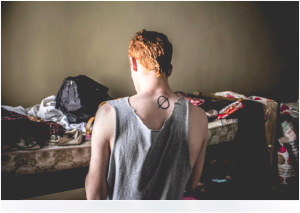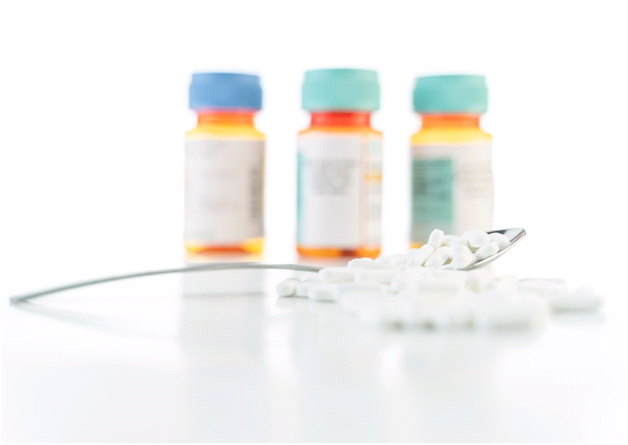Drug addiction isn’t as uncommon as it seems. It can be identified by wild cravings for drugs that continue even in the most severe consequences. Drug addiction gradually takes over a person’s life. It may seem harmless at first to simply get high on small amounts, but over time, symptoms of abuse start whereby the body increasingly requires higher doses just to attain that same feeling of euphoria — and by then, casual drug use has morphed into an addiction. For those that leave their addiction untreated, it develops into a chronic illness. These patients can suffer from recurring relapses even after abstaining from drug use for a long time because it becomes a compulsive need to fulfill their drug cravings. This blog will discuss about How Rehabilitation Works.
In most cases, the consequences of drug addiction affect not only the individual but also their family members, resulting in dysfunctional living habits that disrupt the inter-dynamics of the family. Additionally, friends and co-workers might also experience disruptive behaviors when interacting with the individual — which underscores the point that drug addiction should never go untreated. As such, it is important for individuals to seek rehabilitation for any substance abuse; the earlier one is diagnosed and treated for drug abuse, the less painful the rehabilitation journey will be. If you’re looking to find out more about drug abuse and what treatment is like, read on to find out more.
Substance Abuse and/or Addiction
First things first, substance abuse or addiction can be defined by the frequent and routine use of chemical substances like drugs, alcohol, tobacco and even prescribed medication. The use of chemical substances would be done primarily for altering the body or mind’s state for reasons other than medical purposes. If an individual is observed to be having three or more of these symptoms within a 12-month period, it is likely that he/she is suffering from substance abuse/addiction. Here are some ways to identify possible substance abuse or addiction:
– Taking the substance in larger doses than what is prescribed;
– Constantly craving the chemical substance and any efforts to abstain are often futile;
– Investing a lot of time and energy just to obtain and use the substance;
– Compromising on recreational, social and even occupational duties because the individual is invested in using the substance;
– Substance abuse/addiction persists despite having an existing health issue that could be worsened by the substance use;
– Substance tolerance from prolonged use. This can be observed by noting if the individual is taking higher doses each time due to diminishing effects. Alternatively, some individuals take increased doses just to cope with these withdrawal symptoms.
– People with alcohol and drug issues always have a chance to recover and achieve sober living.
Much data has been collected that proves how the treatment is effective for drug abuse patients, but facts are often distorted by the media and hear-say that rehabilitation isn’t as effective as it seems. Many others still believe that drug abuse treatment isn’t effective and just because symptoms recur over time due to relapses, these people dismiss the significance of rehabilitation because they see the treatment as a failure for not completely curing the individual quickly. However, the reality is that drug treatment goes beyond just using the substance. It also uncovers the root causes of drug use in the first place and reveals unsettling problems: these include the desire to escape one’s problems through drug abuse. Understanding the reasons behind drug use is crucial for a successful recovery. As drug addiction is a chronic disorder, it requires a conscientious effort and continuous treatment for one to see the end of the tunnel.

Setting Expectations For One’s Drug Rehabilitation Journey
Drug rehabilitation sounds scary because not everyone knows what to expect. Ensuring that you or your loved ones know what the drug rehabilitation journey is like can help to reduce the feeling of apprehension when you’re informed about the treatment. While it is true that drug addiction is a very personal problem, and each case varies with every individual, there are some common program elements you can expect:
- Interview and Assessment
Every drug abuse patient will be assessed individually and personal requirements will be noted down so that the program and staff can cater to the individual’s personal needs. There will be an interview period and a medical exam, and in some cases, there might be a psychiatric examination too.
2. Having A Roommate
Drug rehabilitation programs help socialize the individual, so patients will be assigned a roommate. Having a roommate helps prevent antisocial and isolating behaviors, and it is also a less expensive proposition for those considering the residential program.
3. Detoxing
During the initial phase where the individual undergoes an assessment interview, the staff will determine if the individual requires a medical detox, also known as a medical observation, for a supervised chemical substance withdrawal duration. This can range from a few days to up to a week or more, depending on the severity of the drug abuse.
4. Schedules
There won’t be much free time for rehabilitation patients because there are structured programs arranged to maximize the treatment plans. It is meant to reintroduce a new way of life that is free from addiction issues. The structured program also helps individuals learn how to make clear-headed decisions again.
5. Counseling sessions
Counseling sessions will take place in either a group setting or on a one-to-one basis. They typically occur daily. There will be a certified counselor or a therapist to lead the counseling session and other procedures include animal-assisted therapy, hypnotherapy, cognitive behavioral therapy among many others.
6. Education
Rehabilitation patients will be exposed to educational workshops pertaining to drug addiction and how the recovery works. These workshops can help reinforce the individual’s conviction to fully recover from their addiction issues because it helps them better understand their own feelings and actions and what they can expect in the following months.
7. Preventing Relapses
The rehabilitation journey will plan against relapses so that the individual is able to avoid triggers that pose threats to their continued sobriety. This will help create a better recovery environment for the individual and ensure that their treatment plans are as effective and will run as smoothly as possible.
8. Recreational Activities
There will be recreational activities like sports, cultural workshops, and even community outings to help the individual realize that there are other ways to attain joy and happiness other than through substance abuse. The activities help people understand that sobriety and clear-mindedness can be as enjoyable as being intoxicated — but even better, because there is no reliance on any harmful substances.
9. Family Involvement
Family support is crucial because family members can help make sure that the individual steers clear of any potential triggers for relapses. Plus, they are likely to understand the individual’s drug addiction history best out of other people, so it will be important for family members to remain supportive of optimal recovery results.
10. Long-term Care
Even after residential care ends, rehabilitation doesn’t stop there. It can go on for weeks or months after. The transition may not be the easiest, but statistics have shown that rehabilitation patients who put in a conscious effort to attend their group counseling sessions have the highest chances of long-term, full recovery.

Seeking help for drug addiction problems isn’t easy, but to first accept that one is suffering from possible drug addiction can be tough for the individual. Rehabilitation programs are never as simple as they appear. Even so, that’s no reason to avoid seeking official medical help for a chronic illness. Drug rehabilitation programs are meant to aid your recovery process, so don’t be discouraged if you or your loved one isn’t seeing quick results — change is not always easy but it will always be worth it in the end.









